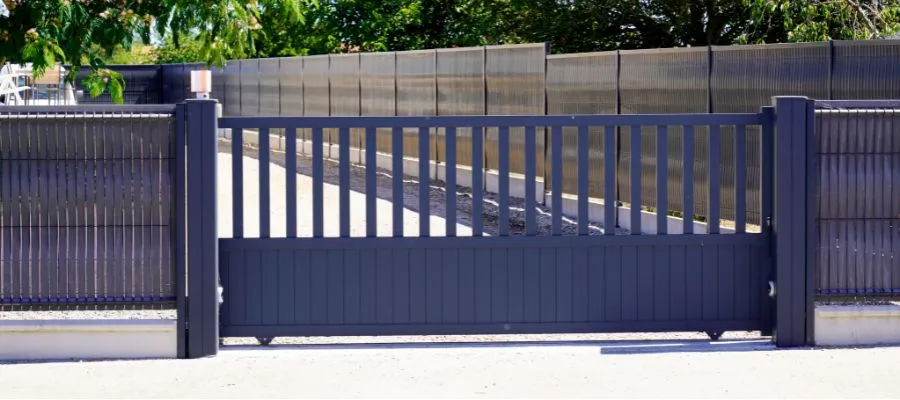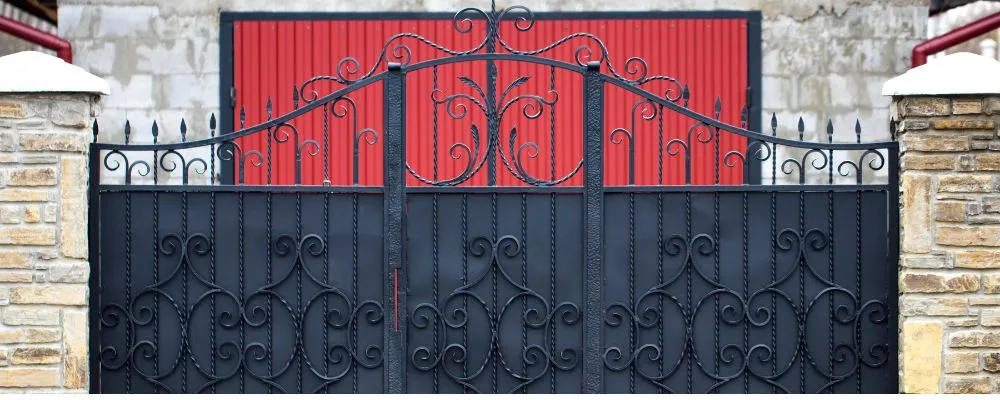The Gate is the entry point of the home. It is given to the compound wall or the home’s exterior wall. The gates are available in various designs made of different kinds of materials. In India, they are made up of either wood or steel. The Wooden Gate for Compound walls is uncommon today as it is expensive and non-durable. Steel gates are usually made of stainless steel or mild steel. Stainless Steel Gates are lustrous and silvery. They are left unpainted to maintain the property of lustrousness. Meanwhile, the Mild Steel gates are painted or powder-coated to enhance their appearance.
In this blog, Brick & Bolt discusses compound wall gates, their classification, and their types.
Types Of Compound Wall Gates Based On The Materials Used:
The following are the Types of compound wall gates based on the material used.
- Wooden Gate: These gates are made of wood and require high maintenance. They are not suited in high moisture zones as the wood swells when absorbing water. It also degrades periodically by fungus or termites if not serviced properly. The three types of wooden gates are:
- Teak Wood Gate.
- Sal Wood Gate.
- Plywood Gate.
- Steel Gate: These gates are made of Steel or Iron by experienced fabricators. They are relatively more durable than wooden gates. However, they are prone to corrosion and require periodic service. They are relatively affordable, and the cost per gate depends on the designs and materials used. A typical 4-foot gate starts from Rs 6000.
- Stainless Steel Gate: Stainless Steel Gates are stylish and durable. They are less prone to corrosion and require less maintenance. However, they are relatively costlier as they are made only by Stainless Steel fabricators, and the material cost is high. Always be sure of the thickness of the Steel Tubes used in the Gates. (Adopt 16 gauge or 1.29mm as the minimum thickness of the tubes used.)
- Mild Steel Gate: The Mild Steel Gates can be made of CR tubes, HR tubes, MS steel bars, or a combination of all unique designs.
- Cold Rolled Tube Gate: These tubes are available in various shapes and sizes, with gauges ranging from 19 to 14. (For better durability, Adopt 16 gauge or 1.29mm as the minimum tube thickness.)
- Hot Rolled Tube Gate: These tubes are less used and relatively economical. However, they cannot be powder coated as their texture is relatively rough and can only be painted.
- Non-tubular Gate: These are made from steel bars, gate channels or angles.
- Integrated Tubular Gate: These are made from tubes associated with steel bars and angles.
- Aluminium Gates: These are made of aluminium and are rarely used, as the strength of aluminium is not as good as steel.
Types Of Compound Wall Based On The Serviceability Used:

The following are the Types of compound wall gates based on the serviceability used.
- Sliding Gate: They are the most stylish and space-oriented gates and they are best suited for car parking and are the handiest variety of gates.
- Track Sliding Gate: It will have a track laid with steel bars or angles that run the Sliding part. It is prone to track jams and requires periodic maintenance.
- Cantilever Sliding Gate: This is a sliding gate with wheels, a track, and a cantilever projection. It has no track jams and requires less maintenance.
- Telescopic Sliding Gate: A sliding gate can be split into parts of track sliding gates. It’s best suited for places where there is a paucity of space for opening the gates.
- Swing Gates: These gates are the most used and are widely available.
- Single Swing Gates: They are single-leaf gates with either clockwise or anti-clockwise openings.
- Double Swing Gates: They are double-leaf gates with either exterior or interior openings.
- Collapse Gates: These are old-fashioned gates and require periodic maintenance. They collapse themselves before sliding through the track provided to open the gate.
- Folding Gates: These double swing gates fold at certain intervals to fit cars inside them. They are usually provided at places where there is ample space for opening the gate.

